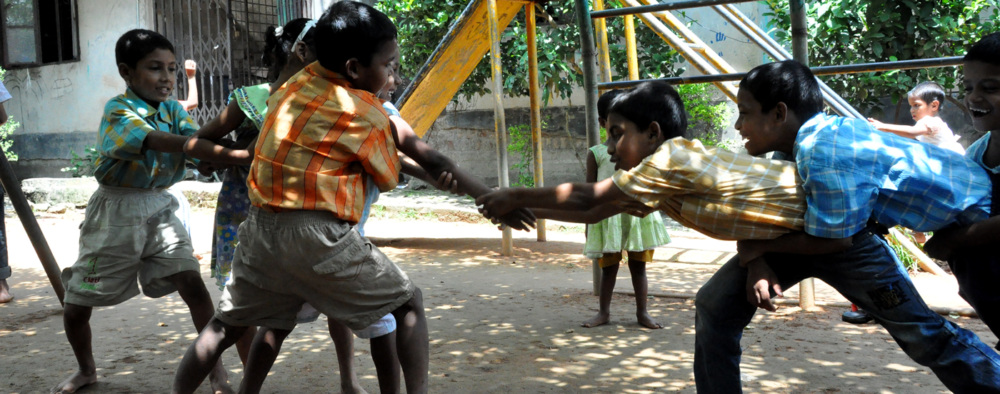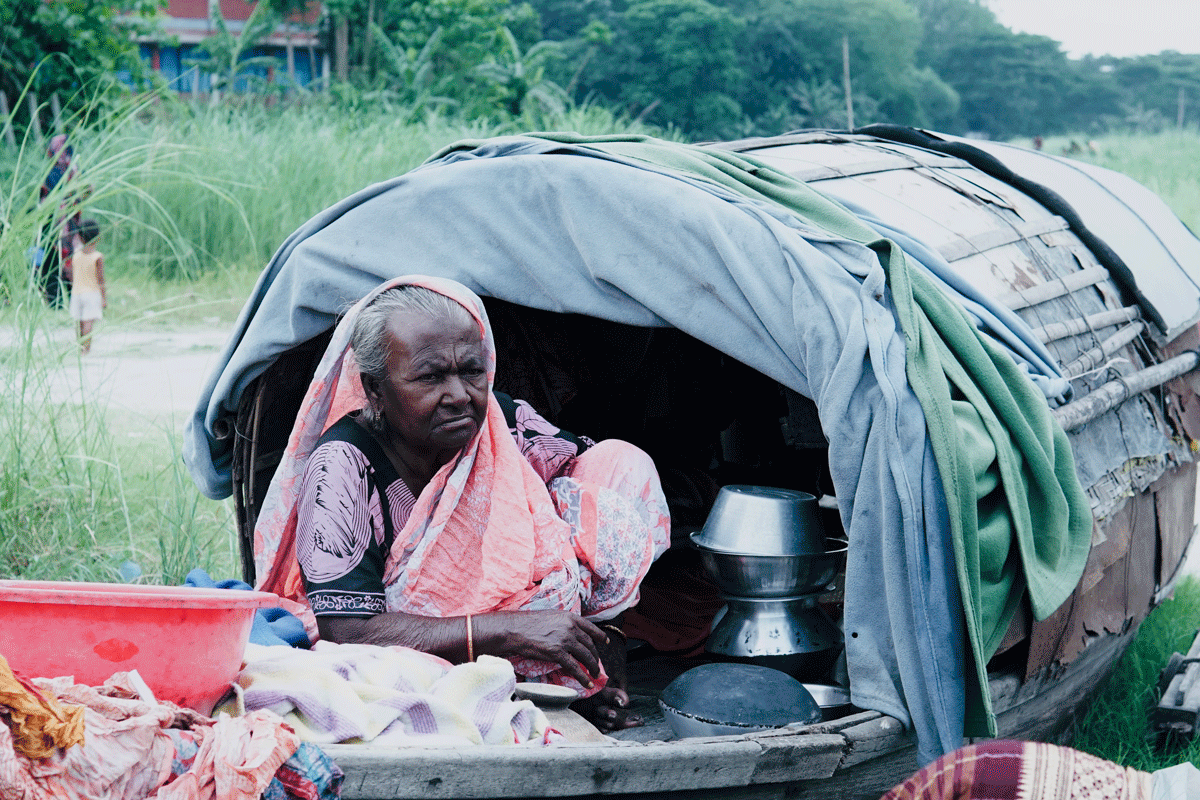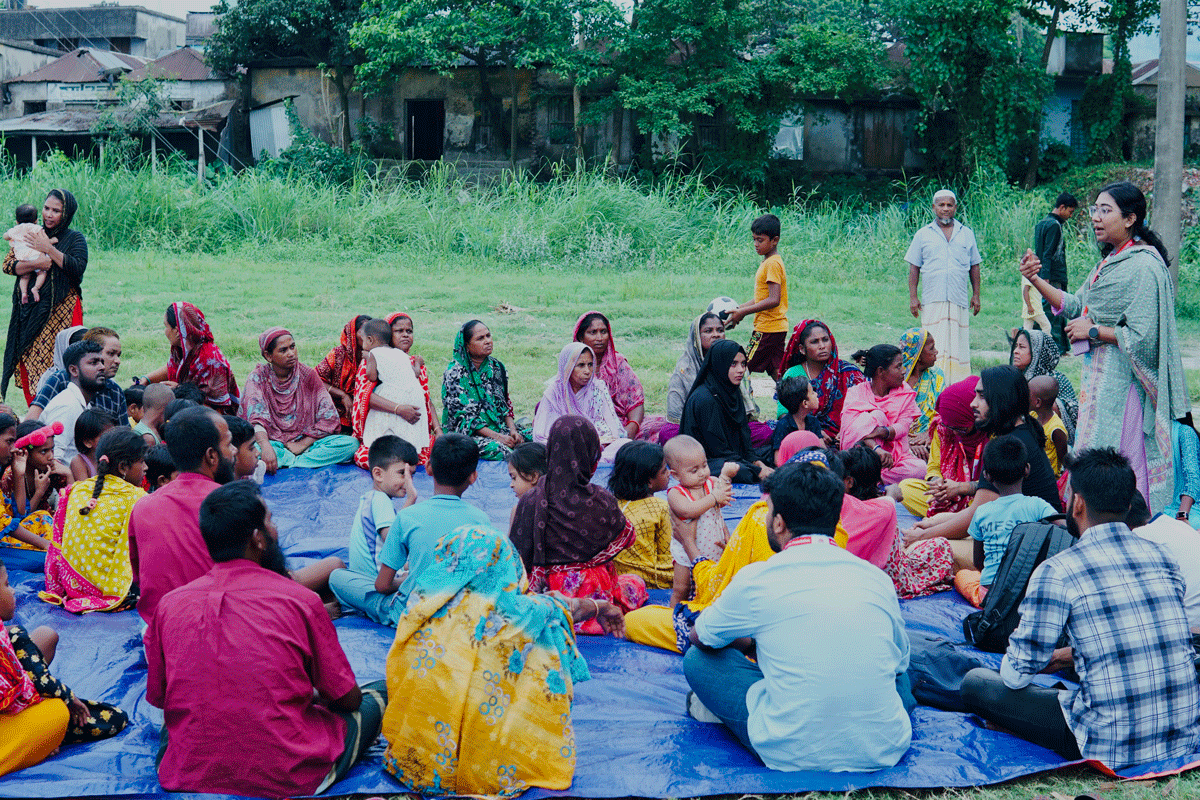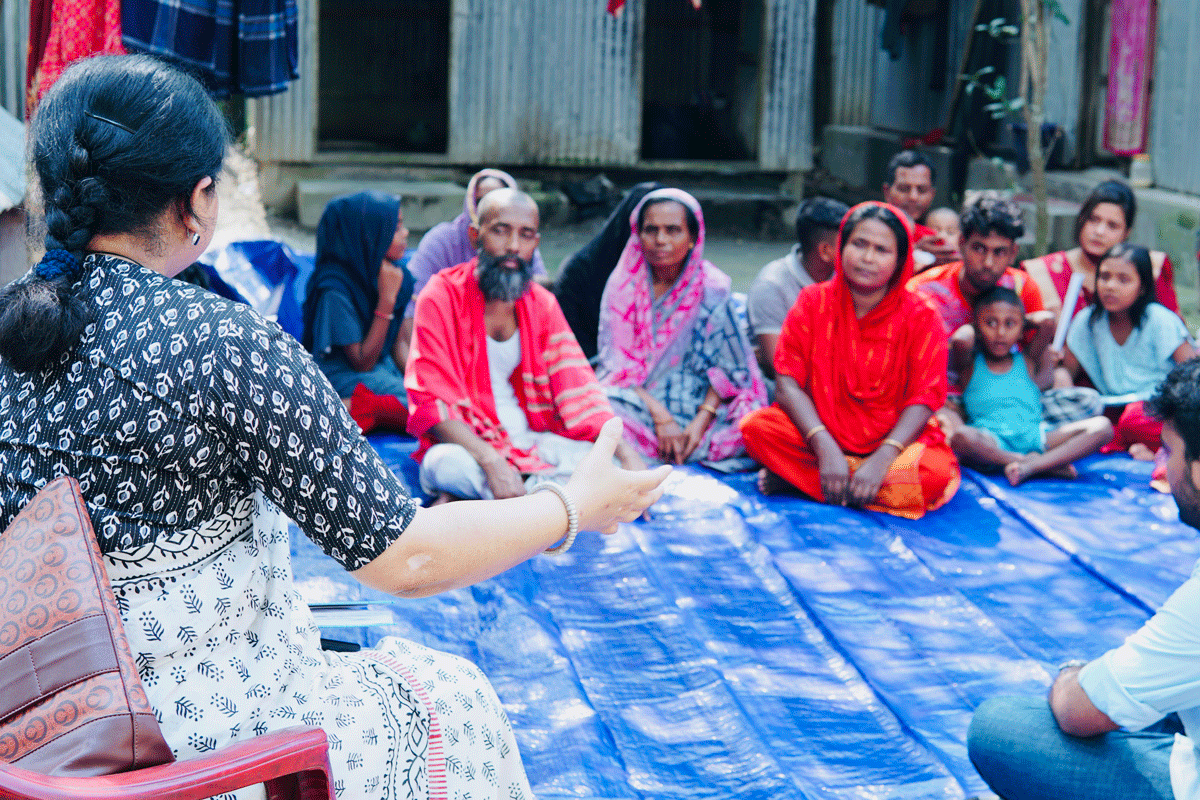
Éducation, sécurité et bien-être
Imaginez passer votre vie sur un petit bateau voyageant sur les immenses fleuves du Bangladesh, où le bateau n'est pas seulement utilisé comme moyen de transport, mais est également l'endroit où vous cuisinez, dormez, vous baignez et, à loisir, vous reposez.
Telle est la réalité de la communauté nomade Bede au Bangladesh, un groupe minoritaire confronté depuis longtemps à la discrimination.

Leurs bateaux leur servent de maison et l’absence d’adresse fixe complique encore davantage leur accès aux services de base comme l’éducation et les soins de santé. Alors que le Bangladesh affiche un taux d’éducation primaire de 77%, celui de la communauté Bede est inférieur à 1%. Les soins de santé préventifs sont quasiment inexistants, seuls 2% des enfants Bede étant vaccinés, ce qui les rend vulnérables à diverses maladies.
Consciente de ces difficultés profondes, Alokito Kori, une organisation de jeunesse du Bangladesh, est intervenue pour faire la différence. Le parcours d’Alokito Kori a commencé à Munshiganj, près de la rivière Padma, où l’organisation a commencé à nouer des relations avec plus de 200 familles Bede. L’accent initial était mis sur l’éducation, car les enfants n’allaient pas à l’école, en partie à cause du harcèlement et de la discrimination dans les écoles locales.
Alokito Kori a franchi une étape importante en créant une école au sein de la communauté. Les familles vivant sur des bateaux reviennent généralement au même endroit à certaines heures de la journée, ce qui permet aux enfants d’accéder plus facilement à l’école. De plus, certaines familles vivent sur la rivière mais restent à proximité. L’initiative de l’école visait à offrir un environnement sûr et encourageant pour que les enfants puissent commencer leur scolarité. Les résultats ont été prometteurs : de plus en plus d’enfants ont commencé à rejoindre l’école, montrant un intérêt croissant pour l’apprentissage. Cette école est devenue un phare d’espoir, symbolisant la possibilité d’un avenir meilleur.

Mais Alokito Kori a vite compris que l'éducation seule ne suffisait pas. La communauté Bede est confrontée à de nombreux autres défis, notamment l'instabilité financière, la malnutrition, le mariage des enfants et la violence domestique. Pour répondre à ces problèmes de manière globale, Alokito Kori a adopté une approche multidisciplinaire, en mettant l'accent sur l'amélioration des conditions de vie générales, la garantie de la sécurité alimentaire, la promotion de l'indépendance financière et la résolution des problèmes sociaux qui entravaient le progrès de la communauté.
Le partenariat entre Alokito Kori et le Fonds mondial pour les enfants (GFC) dans le cadre du – qui est soutenu par Nous avons confiance – a joué un rôle déterminant dans le changement. Cette collaboration se concentre sur le développement mené par la communauté, incitant les habitants de Bede à prendre leur vie en main. Grâce à l’idéation et à l’action collectives, la communauté a commencé à croire en son pouvoir de provoquer le changement.
Depuis plus de neuf ans, Alokito Kori s'efforce de faciliter l'appropriation communautaire pour mener un changement transformateur. Cependant, de nombreux membres de la communauté Bede étaient réticents à sortir de leur zone de confort et à saisir de nouvelles opportunités en collaboration avec des personnes de la communauté traditionnelle. Pour surmonter cela, grâce à l'initiative ARC, Alokito Kori a commencé à utiliser le SALT (Stimuler, Apprécier, Écouter, Apprendre, Travailler en équipe et Transférer) et CLCP (Processus de compétence pour la vie communautaire) des cadres visant à mettre l’accent sur l’appropriation communautaire pour apporter des changements. Pour rendre ces processus plus efficaces, Alokito Kori a également formé des facilitateurs SALT issus de la communauté.
Jannatul (nom d'emprunt) a commencé à fréquenter l'école Alokito à l'âge de 10 ans. Dans la communauté Bede, il est courant que les filles qui ne sont pas scolarisées se marient très jeunes. Grâce au programme d'éducation complémentaire de l'école, Jannatul a pu poursuivre ses études et éviter un mariage précoce. Aujourd'hui, à 17 ans, elle continue de se consacrer à ses études et a la ferme ambition de se construire une carrière. Jannatul est également facilitatrice SALT auprès d'Alokito Kori, contribuant ainsi à apporter des changements transformateurs dans sa communauté.

À travers SEL Grâce à ces discussions, les membres de la communauté Bede de la région de Munshiganj ont commencé à s'approprier à la fois les réalisations de la communauté et ses défis, en utilisant ces discussions pour reconnaître leurs points forts et créer une vision commune de l'amélioration. La communauté a donné la priorité à plusieurs initiatives clés :
SEL est devenu un outil précieux pour la communauté Bede pour favoriser des changements durables dans l'éducation, les moyens de subsistance et les normes sociales, créant une communauté plus solidaire, informée et résiliente et démontrant comment les approches communautaires peuvent répondre aux besoins critiques de la vie quotidienne des gens.
